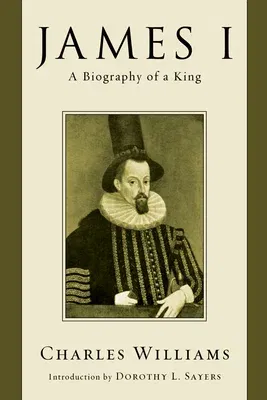""The following pages are concerned with James Stuart, and not the
history of England except as it affected James Stuart,"" writes Williams
in his preface. All relevant historical details are woven into this
narrative account, however, like his novels, Williams pushes further
into the very personality of James. Early chapters cover the alliances,
plots, and threats of his Scotland years; latter chapters cover his
reign in England, which commenced in 1603. Situated between the
executions of his mother (Mary) and his son (Charles I), ""the curious
figure of James stands at the change of the centuries. The splendour of
the Renascence homo is becoming the clarity of the seventeenth-century
gentleman."" ""Shakespeare and Bacon were to be his servants; Harvey his
physician, Donne his chaplain. He was to be the patron of the great
English book that declared the coming of the Prince of Peace, and to see
himself as a prince of peace, bringing rest to the afflicted churches
and nations. But war in Europe and war in England were to open over his
grave; the gossips were to spice their scandalous talk with his name;
and afterwards everybody was always to laugh or shudder at him for
ever."" ""Williams never forgot that every age is modern to itself, and
that this fact, or illusion, links it with our own. Thus to all men in
all ages he has the same direct approach; the same readiness to accept
their behaviour as human (and not 'strange' or 'quaint'); the same
charity, to which irony gives a certain wholesome and astringent edge.
This freedom of judgment is not to be obtained except from the viewpoint
of a theology which postulates an absolute truth, and which sees in the
material facts of history the symbol and expression of that truth.""
--Dorothy L. Sayers, from the Introduction Author and scholar Charles
Williams (1886-1945) joined, in 1908, the staff of the Oxford University
Press, the publishing house in which he worked for the rest of his life.
Throughout these years, poetry, novels, plays, biographies, history,
literary criticism, and theology poured from his pen. At the beginning
of the Second World War the publishing house was evacuated to Oxford
where, in addition to his own writing and his editorial work for the
Press, he taught in the University.


